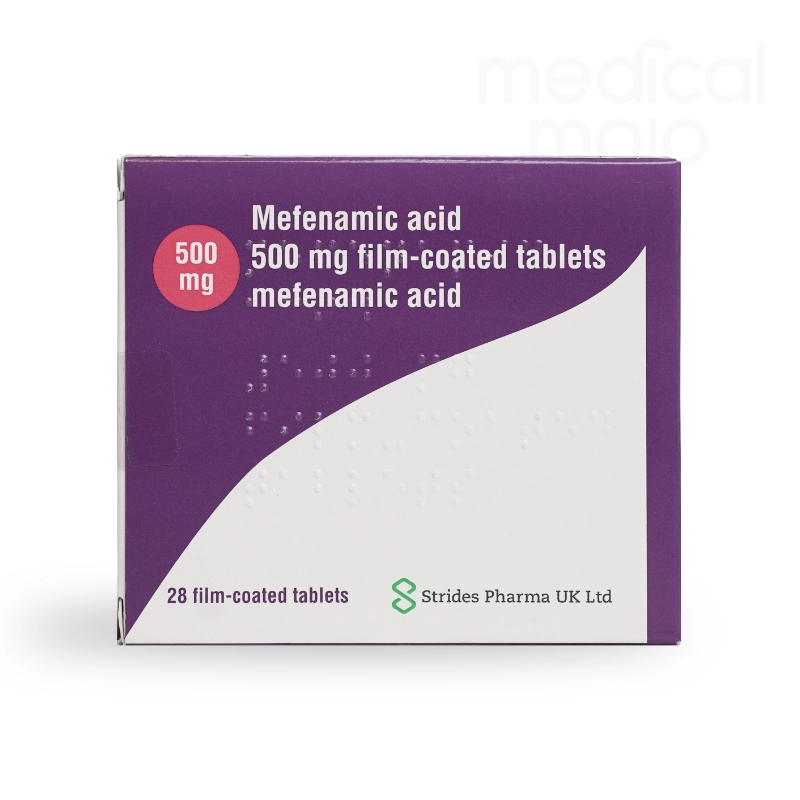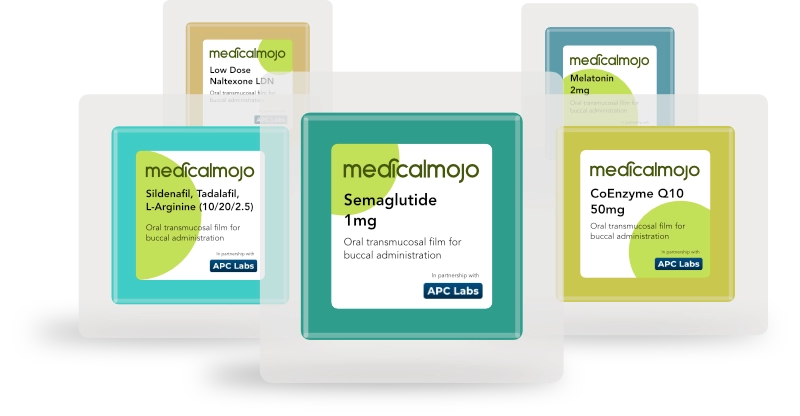What is Mefenamic Acid?
Mefenamic Acid tablets are a pain relief medication specifically designed to alleviate menstrual cramps and associated discomfort. Each tablet contains mefenamic acid, a non-steroidal anti-inflammatory drug (NSAID) that helps reduce inflammation and pain.
How does Mefenamic Acid work?
Mefenamic Acid works by inhibiting the production of prostaglandins, chemicals in the body that cause the uterus to contract during menstruation. These contractions lead to the pain and cramps often experienced during periods. By blocking prostaglandins, Mefenamic Acid reduces these contractions, easing the pain and also reducing the amount of blood lost during your period.
How quickly does Mefenamic Acid work?
Mefenamic Acid typically begins to take effect within 30 to 60 minutes. By taking the recommended dose three times daily before and during your period, you can maintain consistent relief throughout the day. For particularly severe pain, you can combine Mefenamic Acid with paracetamol and use heat pads on your abdomen and lower back.
Are there alternatives to Mefenamic Acid?
Yes, there are several alternatives for period pain relief. Options include:
- Tranexamic Acid: Another NSAID that primarily reduces bleeding but also helps with pain.
- Naproxen: A powerful anti-inflammatory option.
- Paracetamol: Can be taken alongside Mefenamic Acid for additional pain relief.
Can I take Mefenamic Acid with other medications for my period?
Mefenamic Acid can be safely taken with paracetamol. However, you should avoid taking it with other NSAIDs, such as ibuprofen, aspirin, or naproxen. It is also safe to take Mefenamic Acid with the contraceptive pill, which many women use to reduce period pain.
What is the recommended dosage of Mefenamic Acid?
The standard dosage is one 500mg tablet taken three times daily with or after food during your period.
What are the ingredients in Mefenamic Acid tablets?
Each tablet contains 500mg of the active ingredient, Mefenamic Acid. Inactive ingredients include Lactose Monohydrate, Pregelatinized Starch, Croscarmellose Sodium, Povidone, Microcrystalline Cellulose, Colloidal Silicon Dioxide, Magnesium Stearate, and coating materials like Hypromellose, Titanium Dioxide, and Iron Oxide Yellow.
What are the side effects of Mefenamic Acid?
Common side effects include:
- Stomach pain
- Nausea
- Diarrhea or constipation
- Dizziness or drowsiness
- Headaches
- Heartburn
In rare cases, serious side effects may occur, such as gastrointestinal bleeding, severe allergic reactions, kidney problems, or liver issues. Seek immediate medical attention if you experience symptoms like vomiting blood, black stools, or severe abdominal pain.
What precautions should I take before using Mefenamic Acid?
Do not take Mefenamic Acid if you have:
- A history of stomach ulcers or gastrointestinal bleeding
- Allergies to NSAIDs or aspirin
- Severe kidney, heart, or liver issues
- Are pregnant or breastfeeding
Speak with your doctor if you have liver or kidney problems, bowel disorders, a history of heart issues, or if you are taking other medications that might interact with Mefenamic Acid.
Can I take Mefenamic Acid with other medications?
You should avoid taking Mefenamic Acid if you are using other NSAIDs, anticoagulants like warfarin, certain blood pressure medications, SSRIs, corticosteroids, or methotrexate. Consult your doctor or pharmacist if you are unsure about any potential interactions.










